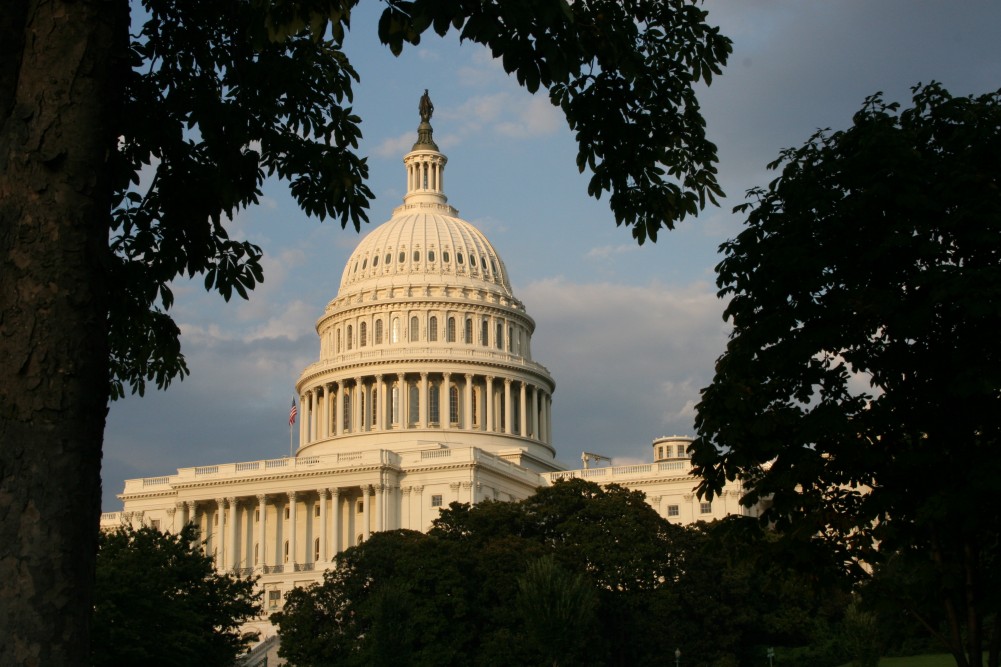Today, Senators Whitehouse, Grassley, and Feinstein and Representatives Maloney, King, Royce, Waters, and Moore introduced a bipartisan bill to end the use of anonymous shell companies. If passed by Congress and signed by the President, the measure would disrupt the global system for money laundering used by corrupt public officials, terrorists, drug cartels, human trafficking operations, and others and provide leadership to the international move toward transparency.
Our laws have proven to be so porous that, a few years ago, it was discovered that Iran was evading economic sanctions by stashing money in the U.S. That’s right; the Iranians did not hide their money in North Korea or Russia or China. They set up an anonymous shell company and bought condos in New York City. More on that below.
As the discussion of this important piece of legislation gets underway, let’s remember that this is about shielding bad actors that engage in activities that undermine national security and public safety. Anonymous companies are used to facilitate good old-fashioned corruption that leads to, among other dangers, fraud, and abuse of taxpayer dollars.
Whether the concern is terror financing or human trafficking, shell companies are the vehicle of choice for laundering money. Police and prosecutors cannot follow the money trail because at some point it disappears behind a wall of secrecy. Cases fall apart, and criminals walk away.
There are ongoing discussions among the nation’s largest banks about how to rid themselves of the accounts of human traffickers. They rightfully don’t want that business. The U.S. shouldn’t either.
Here’s how it works. When a person sets up a company, they aren’t required to list the real person(s) who own or control its activities. Individuals can conceal their identity by using front people to represent the company. For instance, the real owner’s attorney can file paperwork under the attorney’s name even though they have no control or economic stake in the company. Consider that at Mossack Fonseca, the now infamous “Panama Papers” law firm, one person was listed as a director for more than 20,000 companies.
It should be of great concern that U.S. laws are, in some important ways, even weaker than laws in Panama. Panama requires ownership information to be collected, but it’s then hidden even from law enforcement. In the U.S., there is no requirement to even collect the information. Subpoena power is not helpful — law enforcement is stymied and criminals can launder money with impunity.
While some states collect more information than others, no state requires the true owners to list who they are when incorporating a company. One academic study found that the U.S. is the easiest country in the world to use anonymous companies to launder money. Similarly, the World Bank found that American shell companies were used to move dirty money more often than those registered in any other country in grand corruption cases. Our current laws do not help.
The evidence of criminal use of anonymous companies has been building over the years and is now overwhelming.
- Drug cartels: A Serbian drug lord and his brother are accused of using Delaware shell companies to launder cocaine money.
- Sanctions evasions: An anonymous New York company owned part of a Manhattan skyscraper and used it as a front for the Iranian government. Millions of dollars in rent were illegally funneled to Iran, unbeknownst to stores like Juicy Couture that rented space in the building.
- Weapons trafficking: Viktor Bout, aka “the Merchant of Death,” used a global network of shell companies, including at least 12 incorporated in DE, TX and FL, to disguise his weapons trafficking into conflict zones around the world.
- Human trafficking: A Moldovan gang used anonymous shell companies from KS, MO, and OH to trick victims from overseas in a $6 million human trafficking scheme.
- Defrauding taxpayers: Florida authorities arrested Michel De Jesus Huarte, who set up fake AIDS clinics to bill Medicare for more than $4.5 million, forming at least 29 shell companies in the process. And an Armenian organized crime ring used 118 shell companies in 25 states to bilk more than $100 million from Medicare.
The list is long, but for all we do know, there is much more we don’t. We shouldn’t be solely reliant on leaks and luck to protect ourselves. It is time to give police and prosecutors the basic tools they need to rein in these threats.
The bill has a relatively simple and straightforward bipartisan solution. It requires companies to disclose the true owner(s) when they incorporate and keep their ownership information up-to-date. It would only add a couple extra lines on the incorporation forms and annual reports businesses already have to file, so compliance costs would be minimal.
We are encouraged that the bill has support from across the political spectrum including law enforcement, financial institutions, faith groups, conservative and liberal scholars, human rights organizations, anti-corruption advocates, anti-poverty groups, and more.
It is rare we have such a simple step we can take to address a far-reaching problem.
Gary Kalman, is the Executive Director at The FACT Coalition

